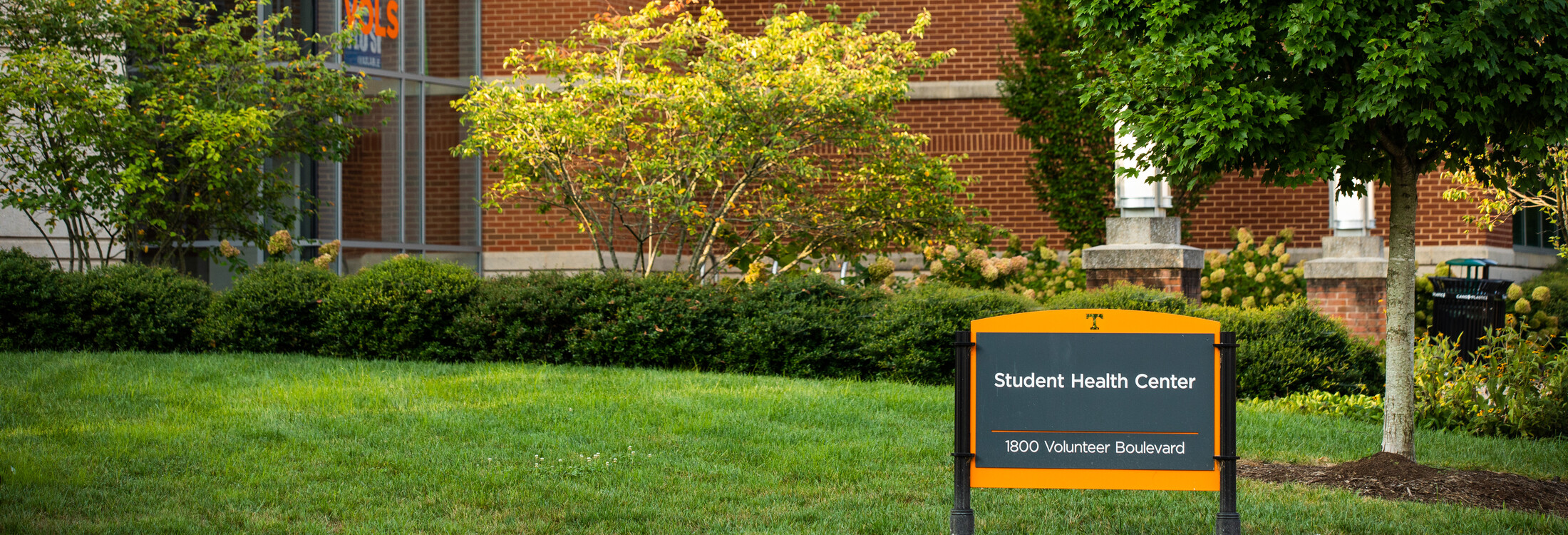by Cecilia Demoski ’23
The combination of a new living environment and the changing of the seasons can lead to an increase in the number of individuals getting sick. During this time of year, it’s common for there to be an increase in the number of upper respiratory tract infections, such as Influenza and COVID-19. I got the chance to talk with Carman North, the Campus Health Surveillance Coordinator at the Student Health Center (SHC), about what students can do if they become sick and ways they can stay healthy.
![]()
Q: How do you catch the flu and other common respiratory illnesses?
A: Most respiratory illnesses are spread when respiratory droplets come into contact with your eyes, nose, or mouth. That can happen either when you breathe in a droplet or touch someone’s hand or a contaminated surface and then touch your face. That’s why it’s so important to cover your cough or sneeze with a tissue or your arm and wash your hands regularly with soap and warm water.
Q: What advice would you give to students in regard to staying healthy this semester?
A: The best thing you can do to stay healthy this semester is to stay up-to-date on seasonal vaccines. There are updated COVID boosters and great flu vaccines, so if you haven’t gotten your shots this fall, it’s time. Of course, it’s always important to support your immune system as well – get plenty of sleep, eat a healthy diet, and try to keep your stress level is manageable. Some students may want to practice social distancing or wear a mask when the levels of respiratory diseases are high, particularly if they are at higher risk of serious illness or have people in their lives who are.
Q: What specific tips do you have for students who are navigating college life during this cold and flu season?
A: You should double-check your syllabi now to make sure you know how your instructors want you to manage absences. Most of your instructors understand that bad health happens to people, sometimes through no fault of their own, but following their protocols shows that you respect the work they put into classes and helps minimize the effect of illness on your academics.
If you live in the dorms or with roommates, make a plan now while you’re well about how you’re going to manage your illness and protect the people around you if you get sick. For most respiratory illnesses, you should plan to stay home and away from others for about five days after your symptoms start or until your symptoms are improving and you’re fever free for a full day.
Finally, you’re inevitably going to be around a lot of people on campus, whether it’s in classes, in the dorms, or somewhere else, and the only person whose health behaviors you can control is yourself, so respect other people’s decisions and do the things you know work. Get your vaccines. Wash your hands. Take care of your immune system.
Q: What should students do if they are sick? 
A: If you have severe symptoms or are at higher risk for serious illness, talk to a healthcare provider as soon as you can after your symptoms begin. There are antivirals and other treatments that can help your recovery. For most students, though, the first thing that you should do if you’re sick is to make sure you have the supplies that you need to manage your symptoms and then stay home and rest. As soon as you’re feeling well enough to take care of some business, fill out the Health and Illness Support Form and start reaching out to your instructors to see what you need to do to make up for any missed work. You may also want to let the folks that you’ve been in close contact with that you’re ill so that they know to keep an eye on how they’re feeling.
Complete the Health and Illness Support Form
Q: What resources does the SHC provide for students who may be experiencing a type of illness?
A: We have a lot of resources to support students! Many students don’t need to see a healthcare provider if they have mild symptoms, but the Student Health Center Pharmacy has knowledgeable staff and over-the-counter medications that can help you manage your symptoms. If your symptoms aren’t going away, you have a health condition like asthma that may put you at higher risk for serious illness, or you just aren’t sure if you need to see a healthcare provider, you can call the Student Health Triage Nurse at 865-974-5080 24 hours a day to discuss the best treatment options for you.
About the Student Health Center
The Student Health Center provides nonemergent, outpatient medical care by appointment for all currently enrolled, eligible students who have paid the health fee portion of the student programs and services fee.
The Student Health Center clinics are divided into primary clinical service areas and specialty service areas. You may see a full listing of the clinics, services, and important patient health and scheduling information on the Student Health Center website.
Booking an Appointment at the Student Health Center
To schedule a same-day or future appointment at the SHC, all students must call the triage nurse at 865-974-5080. There are a limited number of same-day appointments available each day. Appointments are available for scheduling between 8 a.m. and 4 p.m. Monday, Tuesday, Thursday, and Friday, and from 9 a.m. to 4 p.m. Wednesday.

Cecilia is a senior from Mt. Juliet, Tennessee majoring in public relations with a minor in journalism and electronic media. She has a passion for writing and social media and her favorite thing about UT is all the fun traditions. She plans on pursuing a career in public relations and creative communications after graduation.
